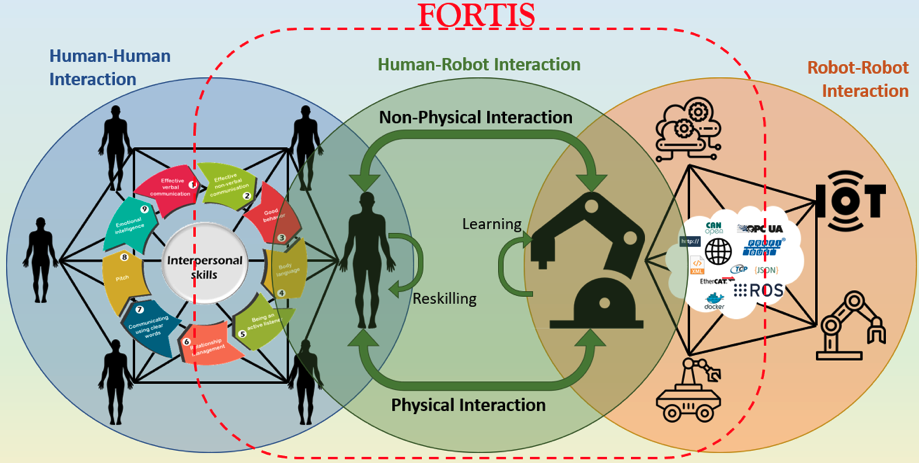Vision
The goal of the FORTIS project...
is to create a comprehensive interaction between humans and robots, encompassing both physical and non-physical communication.
To achieve this, it is necessary to study how humans interact with each other. In psychology, interpersonal skills or social intelligence refers to the ability to interact with others effectively and appropriately.
Humans rely on their senses to interpret various signals, including visual cues such as facial expressions and gestures, vocal cues such as speech and tone of voice, and haptic cues. After processing these signals, humans use reasoning skills to interpret the context and message behind them. How humans react to these signals depends on their personality, experience, knowledge of the context, and understanding of the message being conveyed.

To provide a complete Human-Robot Interaction that targets physical and non-physical interactions, the solution must:
- 1- digitise the human signals,
- 2- reason and inference these signals to obtain the message and the context of the interaction,
- 3- adapt communication or the interaction method with the human.
- 4- take into consideration the human background (i.e., culture, language, etc…) to maximise the interaction efficiency.
The FORTIS project seeks to enable continuous reskilling for humans and readaptation for robots for seamless interaction. In this context, non-physical interaction may involve social, cultural, ethical, and psychological aspects. Communication between humans and robots may occur through different modes. Therefore, to achieve complete human-robot interaction at all levels, the robot must understand the human’s needs and communicate effectively using different aspects.
